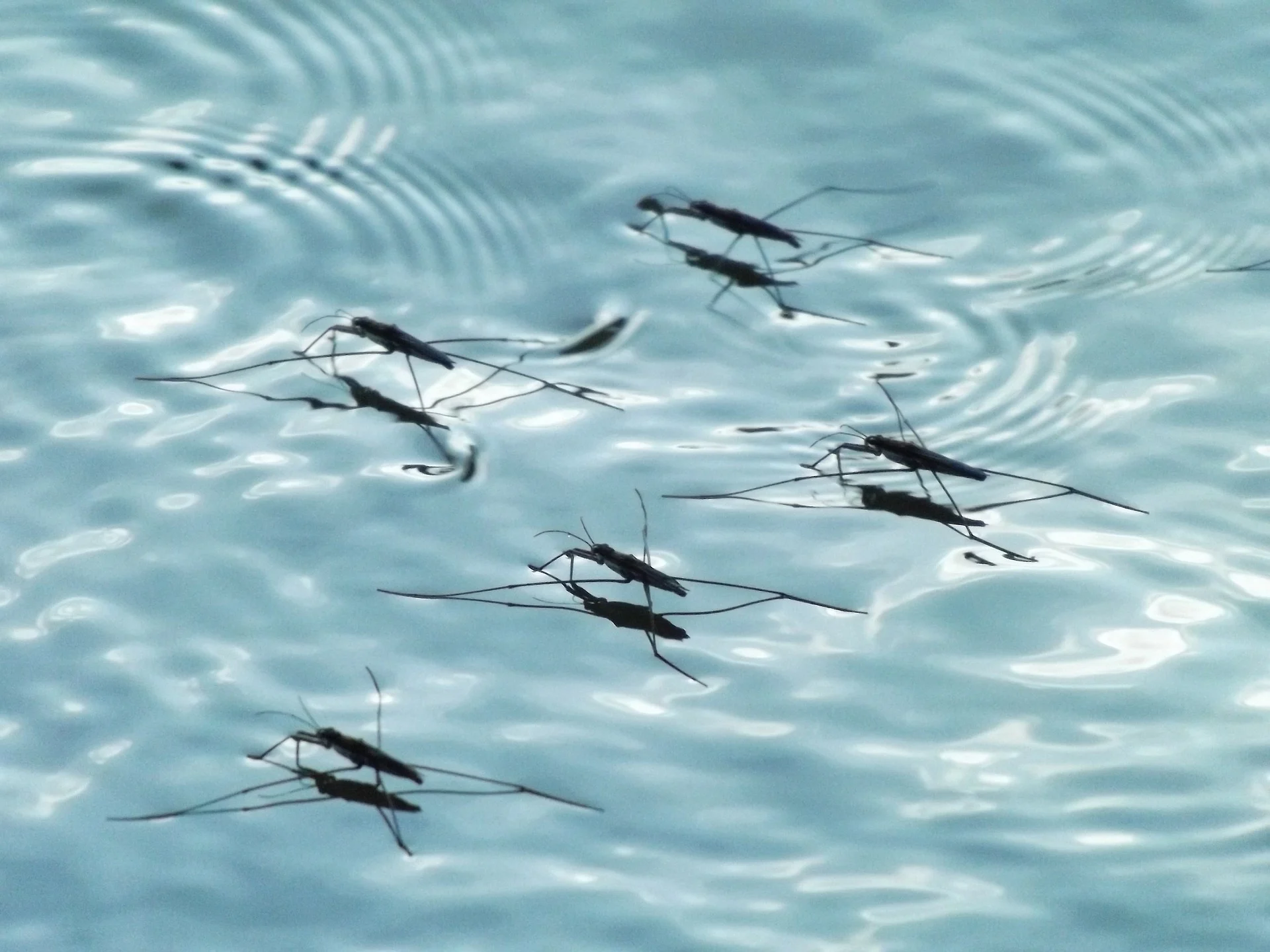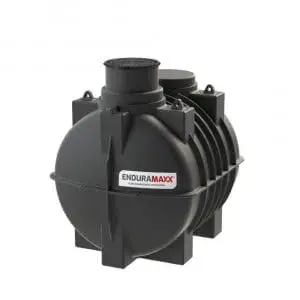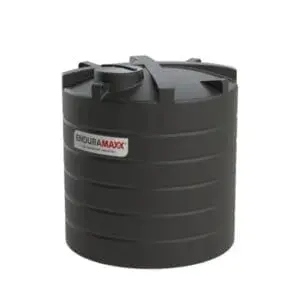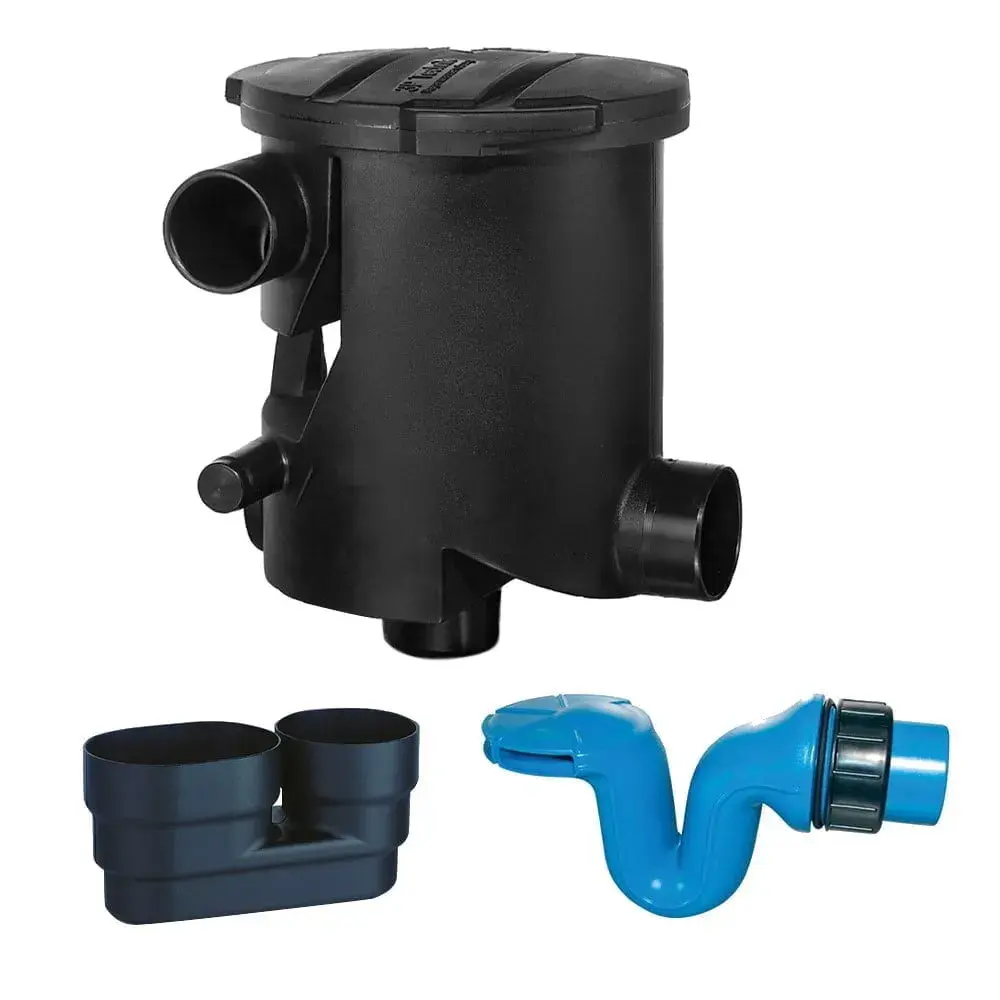
Drinking water tanks containing standing water can become a breeding site for mosquitoes, who lay their eggs in the water. The eggs soon hatch and become larval ‘nymphs’, the next stage of the mosquito's life cycle. If those larvae are left to grow unchecked, they quickly develop into adult mosquitoes.
Mosquitoes are the main global vector for bloodborne diseases such as malaria, West Nile virus, Eastern Equine encephalitis and Zika virus. These human pathogens are rare in the UK but, even so, mosquitoes are known vectors of a wide range of potential allergens and animal diseases, and can easily contaminate a tank of drinking water supply So if you discover mosquito larvae (wrigglers) in standing water, you have to deal with it promptly. Here are some ways to get rid of mosquito larvae in water tanks.
How To Kill Mosquito Larvae In The UK
The best way to manage mosquitoes and other water-loving insects in water tanks is to stop them from entering in the first place.
1) Check inside tanks for mosquitoes and any larvae regularly during the warmer months. If you discover larvae, this indicates a gap or opening through which the females are entering and laying their eggs. Another possibility is that mosquitoes are laying their eggs in pooled rainwater in roof gutters connected to the tank.
2) Look out for areas near the tank where water may be pooling, for instance, below taps and outlets. Stagnant water in pots, buckets, old tyres and wheelbarrows can also offer ideal breeding sites, so empty any containers and store them upside down.
3) There is no safe way to eradicate mosquito larvae from a drinking water tank completely. If you add disinfectant chemicals, the water will not be safe to drink without further filtration and treatment. However, if the water is not going to be used for drinking by people, for example, in ponds, birdbaths or as agricultural drinking water, you can safely add a larvicide such as mosquito dunks. These briquettes float on the water's surface and slowly release a biocontrol agent that kills the larvae.
4) Other widely used methods include adding liquid paraffin or kerosene to water tanks. However, these treatments defeat the purpose of collecting pure rainwater for drinking or irrigation and are only considered a last resort.
Natural Ways To Control Mosquito Larvae In a Small Rainwater Tank or Barrel
Spraying a layer of vegetable oil or cinnamon oil onto the surface of the water is a quick and effective way of killing mosquito larvae. Allow about one teaspoon of oil per gallon of water, just enough to leave a visible film over the whole surface.
This works because mosquito larvae breathe through "snorkels" on their tails - this is why you see them gathering near the surface of standing water. The oil layer oil cuts off their air supply, so they suffocate and die. Do not use this method in fish ponds, as the fish will also suffocate. Luckily, mosquitoes are generally less of a problem in a pool with fish, as they eat the larvae.
Prevention Is Better Than Cure
When dealing with mosquitoes in water storage tanks, one thing is clear: prevention is better than cure. At Enduramaxx, we provide an innovative range of plastic water tanks and bowsers to store water safely without the risk of mosquitoes gaining entry. For more information or a quick quote, please contact us by email or telephone: 01778 562810.
Image Source: Pixabay
Posts By Topics
- Blog (303)
- Chemical Storage Tanks (118)
- Chemical Dosing Tanks (114)
- Chemical Tanks (114)
- Water Tanks (58)
- Rainwater Harvesting Tanks (43)
- Vertical Rainwater Tanks (31)
- Vertical Storage Tanks (31)
- Cone Bottom Tanks (19)
- Conical Cone Tanks (18)
- Rainwater Harvesting (17)
- Water Bowsers (15)
- Horizontal Tanks (14)
- Potable Water Tanks (13)
- Farming (9)
- Case Studies (8)
- Industrial Storage Tanks (7)
- Liquid Fertilser Storage Tanks (6)
- WRAS Approved Potable Tanks (6)
- Wine and Beer Production (6)
- Horizontal Transport Tanks (5)
- Microbrewery (5)
- Rainwater (5)
- Category 5 Break Tanks (4)
- Cider Production (4)
- Mixer Tanks (4)
- Molasses Tanks (4)
- Polyethylene tanks (4)
- Rainwater Filter Kits (4)
- SPECIALIST & BESPOKE TANKS (4)
- Bunded Tanks (3)
- Slimline Tanks (3)
- WRAS Approved (3)
- Clarification Tanks (2)
- Crosslinked Polymer Tanks (XLPE) (2)
- Fertiliser Tanks (2)
- Sump Tanks (2)
- Tank Installation (2)
- Water Butt (2)
- underground water tanks (2)
- ACCESSORIES & FITTINGS (1)
- ATV & UTV SPRAYING UNITS (1)
- Above Ground Effluent Tanks (1)
- Bespoke Tank Frames (1)
- Category 5 Turret (1)
- Caustic Soda Tanks (1)
- Closed Top Bunded Tanks (1)
- Craft beer (1)
- Effluent Tanks (1)
- Enduramaxx (1)
- Ferric Chloride Tanks (1)
- Fire Safety Regulations (1)
- Fire Sprinkler Water Storage Tanks (1)
- Industrial Water Tank (1)
- Open Top Bunded Tanks (1)
- Open Top Cone Tanks (1)
- Open Top Vertical Tanks (1)
- Polyethylene Potable Water Tanks (1)
- Polyvinylidene Fluoride (PVDF) Tanks (1)
- Polyvinylidene Fluoride Tanks (PVDF) (1)
- Pressure Washers (1)
- Pro Series Spot Sprayers (1)
- RWH (1)
- Sodium Hydroxide Storage Tanks (1)
- Sprayer Fill-up Tanks (1)
- Uncategorised (1)
- liquid fertiliser tank (1)
Sign up to the newsletter
enduramaxx.marketing
Related Posts
Water Supply From A Well, Borehole Or Rainwater Tank
Water Supply From A Well, Borehole Or Rainwater storage tank – With the advent of water meters and...
Can Water Storage Tanks be Buried? Underground Tank Options
Can Water Storage Tanks be Buried? This is a question often asked and the answer is Yes! However, a...
Potable Tanks For Drinking Water Storage
With all of the recent talk surrounding water restrictions in farming, from abstraction...
Related Products
From £1,080.00 inc. VAT
£900.00 exc. VAT
From £1,344.00 inc. VAT
£1,120.00 exc. VAT
From £768.00 inc. VAT
£640.00 exc. VAT
£480.00 inc. VAT
£400.00 exc. VAT






